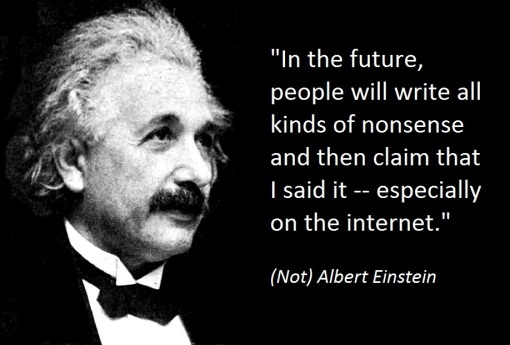Recently, a letter of Albert Einstein’s was sold for US$ 1.5 million. He wrote it while travelling in Japan in 1922. He was short of money for a tip, so he wrote a letter containing some life advice, which could also be called tips. From the following article https://www.livescience.com/60771-einstein-happiness-letter-auctioned.html , here is part of what he wrote:
“A calm and modest life brings more happiness than the pursuit of success combined with constant restlessness.”
It goes without saying that I’m not as smart as Albert Einstein and I never will be. And, I’m not disagreeing with the advice, especially since I had alreay come to a similar conclusion years ago.
But, if I were to say it, would it be less true because I haven’t and won’t have the success he enjoyed? Can someone say to me “sour grapes” and be using the expression correctly? (Do a search for Aesop’s fable “The Fox and the Grapes” if you aren’t familiar with the expression.)
Or, perhaps it is Einstein who isn’t the reliable advisor here. By the time Einstein had written the letter, his place in history was already assured. When discussing the great people of science, such as Newton and Aristotle, you will have to mention to his name, too. So, if he is advising not to pursue success, does it hold much weight? I don’t think so.
Of course, it’s OK if you don’t agree with me — I’m no Einstein!
